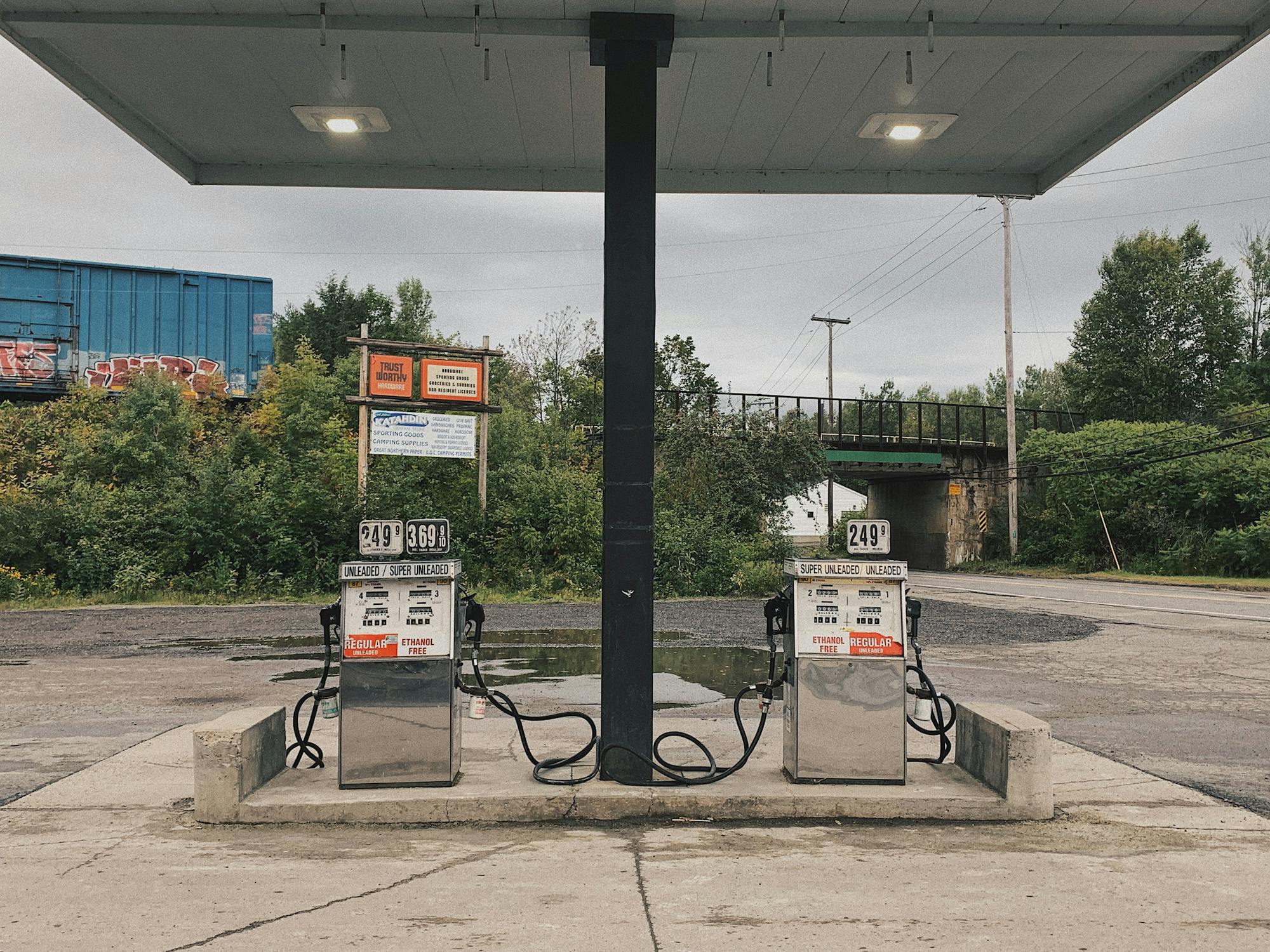The Oil Curse: Lessons From Norway

What Oil?
In an infamous letter that dates back to 1958, the Geological Survey of Norway told the Norwegian Ministry of Foreign Affairs that the possibility of discovering oil off the country’s coast would be very slim. Today, the oil and gas industry is Norway’s largest source of economic growth. Moreover, according to the International Energy Agency, Norway has been able to become the world’s third biggest producer of natural gas, as well as the eighth biggest producer of oil. The amount of wealth that has been generated from Norway’s oil and gas industry is staggering. In the world of wealth funds, Vanguard’s 500 Index Fund and the Fidelity 500 Index Fund are among the largest and most well-known funds available to investors. Vanguard’s 500 Index Fund holds nearly $496.5 billion in assets, while the Fidelity 500 Index Fund holds about $213.4 billion. However, both of these funds pale in comparison to the Petroleum Fund of Norway, which holds in excess to $1 trillion in assets.

A Convoluted Relationship with Oil
Throughout the history of the fossil fuel industry, the development of oil and gas resources has generated an enormous amount of wealth. As one of the fundamental drivers of global economic growth, fossil fuels have dominated energy systems since the Industrial Revolution during the 18th and 19th centuries. Since then, these sources of energy have fueled social, economic, and technological growth around the world. In response to the need for abundant and accessible sources of energy, fossil fuel companies have been among the most profitable corporations of all time. Prior to the collapse in oil prices that was fueled by economic fallout of the coronavirus pandemic, oil and gas companies were not only able to generate tremendous levels of wealth for themselves, but they were also able to create wealth for shareholders, entire governments, and a variety of other institutions. A number of countries around the world have amassed vast fortunes from oil. However, equally as many have fallen victim to what has become known as the curse of oil.
The world’s thirst for oil and gas resources has created a convoluted relationship between oil wealth and conflict. There are numerous political and economic effects that come along with fossil fuel production. The complex link between the presence of oil reserves, economics, and political infrastructure regularly gives way to the so-called oil curse. The main argument behind the concept of the oil curse is that rapidly generated oil wealth has the capability to destabilize democracy and undermine economic stability. Oil-rich countries like South Sudan, Venezuela, Guyana, and Russia are frequently referenced in publications and scientific research reports about the oil curse. From fueling conflict in Africa, leading to economic ruin in Venezuela, and influencing vast levels of corruption in Russia, the oil industry has been linked to widespread political and economic disasters.

Curse or Blessing?
How can the discovery of fossil fuel resources end up being a curse instead a blessing? The topic has been thoroughly studied throughout the modern era. The majority of economic evaluations have found that resource-rich nations grow at a slower pace than countries without vast reserves of natural resources like oil and gas. How is this possible? Economists say that an abundance of valuable natural resources may initiate a displacement of other essential industries that are critical for economic development. For example, if a nation is focused on developing fossil fuels, vital sectors such as manufacturing may never fully receive as much attention and support that would be necessary to fuel diverse economic growth. In addition to supporting uneven economic development, studies have found that oil-rich nations are much more prone to be corrupt, violent, and authoritarian (Beauchamp, 2014).
Hundreds of studies and countless statistical regression models have shown that oil has an adverse impact on democracy. Nigeria is a prime example of this. Even as one of the richest countries in Africa, Nigeria has struggled to manage its fossil fuel industry. While the country is well-endowed with vast oil and gas reserves, Nigeria has struggled to address rampant government corruption, increasing levels of violence, and toxic levels of environmental pollution. According to data published by the U.S. Energy Information Administration, Nigeria is the biggest oil producer in Africa and the world’s fourth-largest exporter of natural gas. Even with huge fossil fuel reserves and equally large oil revenues, the government has struggled to address violent conflicts that have arisen in the oil industry. Despite the oil wealth, Nigeria still achieves roughly the same gross domestic product that the county had nearly half a century ago, before the development of the oil industry (Gylfason, 2001). Moreover, similar to finding a buried treasure, some countries have used the discovery of oil wealth to fuel rapid economic growth, only to have it dwindle away as the riches dissipate.

Norway’s Immense Success
Michael Ross is one of the most well-known researchers in the world when it comes to studying the oil curse. He says that, “No country with high levels of oil and gas income has successfully become democratic since 1960” (Beauchamp, 2014). Norway is the one country that may come to mind that doesn’t fit into this mold. While Norway was already democratic when its oil and gas reserves were discovered, the county has not fallen victim to the socioeconomic declines and the associated conflicts that have been experienced by other nations that have come across vast quantities of fossil fuel reserves. Instead, Norway has become a primary model for how oil and gas resources should be managed. Even though Norway has achieved long-term success with its oil and gas industry, it doesn’t get much international attention in the fossil fuel industry, given the social and political catastrophes that are taking places in other oil-producing nations within the Persian Gulf, Nigeria, Russia, and Venezuela.
The Norwegian government has proven that oil wealth doesn’t have to lead to economic decline or political conflicts. Some economists say that the key to generating consistent and sustainable wealth from the oil and gas industry is the existence of a stable democracy. Since Norway was already a stable democracy prior to the discovery of fossil fuel resources, the country was able to effectively manage the vast wealth that was generated from the industry. Over the past few decades, there have been numerous cases where authoritarian regimes, tribal kingdoms, left-wing dictatorships, and kleptocracies have managed to make significant discoveries of oil and gas resources (Gross, 2004). However, in nearly every case where oil and gas has been discovered by non-democratic regimes, the outcome has not been ideal from a social, political, or economic standpoint. When non-democratic forms of government have begun to generate oil revenue, it has fueled corrupt establishments, prevented long-term economic growth, and has almost never been directed towards initiatives that promote development.

A Scandinavian Solution
Norway’s Scandinavian solution to the oil curse can be found in the country’s creation of the Petroleum Fund of Norway. Less than two decades after the country starting producing a significant amount of oil and gas, the Norwegian leaders established this fund as a financial shock absorber to ensure that the country was able to preserve its oil and gas wealth for generations into the future. Oversight of the Petroleum Fund of Norway is provided by the country’s central bank. The fund converts revenue from the fossil fuel industry into stocks and bonds that are able to appreciate in value, therefore ensuring that the oil and gas wealth is able to be equitably distributed for generations to come. Using a series of external financial managers, the Petroleum Fund of Norway allocates wealth into a series of low-cost investments that are conservatively managed. The investments are divided among equities that can be found across Europe and the rest of world, which has provided an extraordinary level of financial diversification.
Today, Norway is known for its annual budget surplus, low unemployment, and minimal inflation. In comparison to other petrostates, the results are clear. Norway has managed its oil and gas extraordinarily better. While Venezuela holds more oil reserves beneath its soil than any other nation on the planet, the International Monetary Fund has estimated that the country’s inflation rate sits at around ten million percent (Kassai et al, 2018). The stark contrast between the management of Venezuela’s oil industry and the management of Norway’s oil industry has created two very different outcomes for each of these nations. A similar story can be seen in Saudi Arabia, where oil has been pumped for a much longer period of time. While Saudi Arabia has used its oil wealth to become one of the richest countries in the world, the country still holds an unemployment rate of around 25 percent, retains massive levels of public debt, and has some of the worst rates of inequality on the planet (Gross, 2004).

Wealth and Happiness
A 2012 study conducted by New York’s Columbia University found that Norway is one of the world’s happiest countries (Treanor, 2014). The trend in rising levels of happiness may be linked to the country’s rising gross domestic product. In 1970, Norway’s per capita gross domestic product was nearly five percent below the average for the 36 member states within the Organization for Economic Cooperation and Development (OECD). Today, Norway’s per capita gross domestic has risen to nearly 70 percent of OECD average (Holden, 2013). The proper management of its oil and gas boom has ensured that the country has been able to sustain consistent levels of economic growth.
A unique feature of Norwegian oil and gas management has been fiscal restraint. While many counties in the Persian Gulf have used their oil wealth to develop hugely extravagant cities rising from the desert with exotic sports cars lining the streets, Norwegians have taken a fiscally conservative approach to managing their oil wealth. According to Professor Alexander Cappelen from the NHH Norwegian School of Economics, Norway has been successful because of the country’s long-term plan. On an annual basis, Professor Cappelen says that Norway has been spending less than four percent of the revenue that it has been generating from its oil and gas industry, which is one of the reasons how the country’s Petroleum Fund has been able to swell to over a trillion dollars (Treanor, 2014).
While other countries have gone on spending bonanzas after striking it rich in the oil industry, Norway’s conservative approach seems to be working out much better in the long run. Today, the country has enough wealth in its Petroleum Fund to be able to make each citizen a millionaire. Norway’s giant savings account has been a key feature that has prevented the country’s economy from collapsing as a result of the coronavirus pandemic. Even though much of Norway’s economy is still focused around the fossil fuel industry, the Petroleum Fund has provided a significant safety net to ride out the collapse in oil prices. Moreover, it is clear that the country’s long history of egalitarian policies and social democracy has helped to preserve the management of its oil and gas industry.
Sources
Beauchamp, Z. (2014). “The oil curse — how black gold makes countries more authoritarian, corrupt, and violent.” Vox.
Blumberg, A. (2011). “How To Avoid The Oil Curse.” NPR.
Gross, D. (2004). “Avoiding the Oil Curse: What Norway can teach Iraq.” Slate.
Gylfason, T. (2001). “Natural Resources, Education, and Economic Development.” Journal of European Economic Review. Vol 45, pp. 847-859.
Holden, S. (2013). “Avoiding the resource curse: The case of Norway.” The Journal of Energy Policy.
Kassai, et al. (2018). “Venezuela’s Decline From Oil Powerhouse to Poorhouse to Madhouse.” Bloomberg Businessweek.
Larsen, E. (2004). “Escaping the Natural Resource Curse and the Dutch Disease? Norway’s Catching up with and Forging ahead of Its Neighbors.” University of California, Berkeley.
Treanor, S. (2014). “How Norway has avoided the curse of oil.” BBC News.



